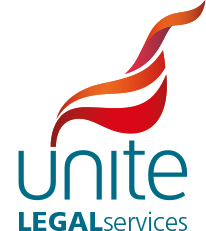Unite Legal Services’ ground-breaking easyJet victory confirmed working women’s right to continue breastfeeding after returning to work and the obligation on employers to accommodate this.
The Employment Tribunal’s written judgment has now been received and Nicky Marcus, regional legal officer, explains the law in detail and what this means going forward for breastfeeding mothers returning to work.
Legal Decision Explained
“We brought claims on behalf of two Unite members, Sara Ambacher and Cynthia McFarlane, for indirect sex discrimination under the Equality Act 2010 and contravention of sections 66 to 70 of the Employment Rights Act 1996, which sets out provisions relating to suspension on grounds of maternity, which encompasses breastfeeding,” said Nicky Marcus.
“Our members succeeded with both legal claims. The employment tribunal found that easyJet required crew members to fly to the patterns rostered, with no restriction on the length of shift that a crew or staff member could complete and that crew may be required to work more than eight hours continuously. The Tribunal accepted that if breastfeeding mothers are not given the chance to express breast milk for over eight hours, this can lead to increased chance of mastitis, milk stasis and engorgement. Although neither member suffered mastitis, the Tribunal found that it remained a risk whilst they continued to breastfeed.
“When considering if easyJet could justify requiring full flexibility, the Tribunal held that there was nothing preventing easyJet from implementing a bespoke roster for our breastfeeding members. The burden of implementing the bespoke roster would be spread between 350 Cabin Crew in Bristol.
“They also held that the Respondent’s reasoning for refusing to accommodate our members’ eight hours rostering request on health and safety grounds was contradictory, since easyJet’s ‘fully flex’ alternative meant rostering the members to work longer hours. The Tribunal rejected easyJet’s claim that their business needs outweighed the impact of the fully flex roster on working mothers who wished to continue breastfeeding, and on our two members in particular.
“In relation to the Employment Rights Act claims, the Tribunal found that easyJet did not carry out an individual risk assessment for our members when there was a material risk to health and safety. They held that as our members were unfit to work over eight hours, when they were provided with no work that accommodated this, they were deemed to be suspended on medical grounds. Our members should have been offered ground duties and these could have been offered at a much earlier stage and, if these weren’t available, they were entitled to be suspended on full pay for the full period they wanted to continue to breastfeed.”
What impact will the decision have in practice?
Nicky added: “The case highlights that all employers should be looking to accommodate breastfeeding mothers. When a breastfeeding mother returns to work, their employer should carry out a risk assessment. The facts of this case are unusual, as there isn’t really the ability to express at work for those in the airline industry, whereas in a standard workplace this ability will exist and an employer is required to provide suitable facilities for this under the Workplace (Health, Safety & Welfare) Regulations 1992. Failure to accommodate expressing might lead to a similar claim.
“If an employer isn’t able to accommodate expressing at work, they should consider alterations to the working hours to enable expressing in line with medical advice. If this is not possible then a breastfeeding mother is likely to be deemed unfit for work and she has the right to be offered an alternative role. If no such role exists and cannot be created then they have a right to suspension on normal pay.
“The decision emphasises that the Employment Rights Act does not lay down a time limit as to how long a mother could reasonably be expected to breastfeed their child. Many mothers start the weening process when they are due to return to work, because they believe they have no other choice. The landmark ruling in this case, which would not have been possible without the support of Unite Legal Services, challenges that misconception.
“Like our ground-breaking holiday pay case, this case is another example of Unite Legal Services making legal history, standing up for workers’ rights and showing just how important it is to have the support of the country’s largest union.”
Click here to download the full Employment Tribunal written judgment.









